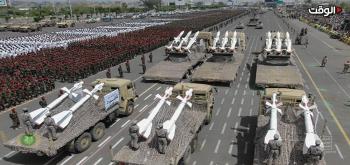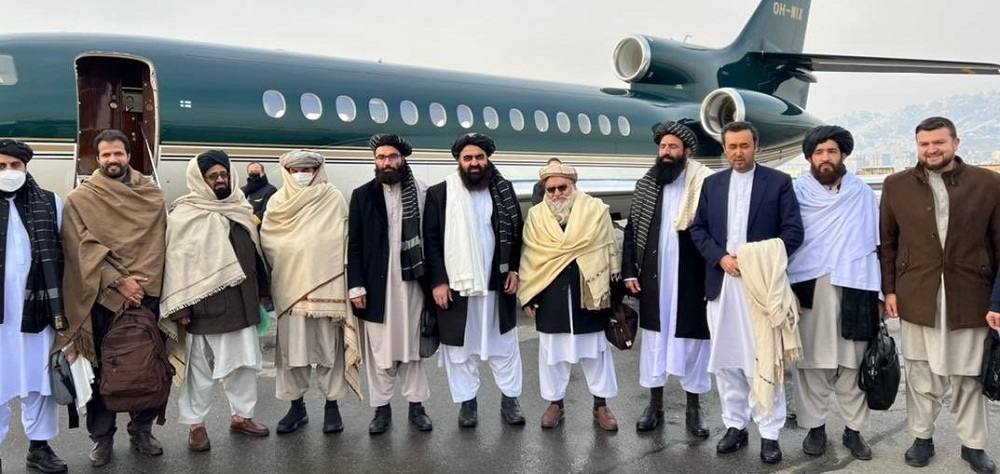Alwaght- Just a few months ago, reception of the Taliban in Europe was as impossible as a cold day in July. However, this happened in the first month of the new year along a series of dramatic developments that have taken place since August 2021 in Afghanistan and brought about big ambiguity to the important Central Asian nation's future– a worrisome ambiguity to Afghan people who are already suffering from the impacts of several-decade war and occupation by the West which is now is hosting a group because of which it imposed a destructive two-decade war on Afghanistan. The ambiguity is also felt by the neighbors of Afghanistan that are aware of the fact that the tumultuous conditions of the country can substantially affect the security and stability in the region.
This ambiguity is more true about the plans or rather the dreams that the Western governments have held for the people of Afghanistan and the region, because the Taliban's demands are not so complex and hidden at present in negotiations with international parties, especially the West. The group is first and foremost seeking international acceptance of the its government in Afghanistan, officially Islamic Emirate, in order to strengthen the foundations of its rule. Advancing this, in turn, will weaken the position of opposition groups inside and outside Afghanistan who want international pressure on the Taliban to share power.
On the other hand, the dire economic situation in Afghanistan these days is not something that the fledgling Taliban government can cure alone and in the short term, and the continuation of this economic predicament will severely undermine the internal legitimacy of the Taliban in the eyes of the Afghans. A large part of Afghan society, especially in rural, tribal, and mountainous areas and away from large cities, which make up a significant part of the country's population, is experiencing unprecedented famine and starvation. Meanwhile, Taliban's lack of experience in governance and the deprivation of financial sources abroad due to the Western sanctions take away from the new rulers the power to make a difference.
Happy to be well received by the Europeans, the Taliban sounds upbeat about making gains in the negotiations in Oslo. According to Abdul Qahar Balkhi, the Taliban foreign ministry's spokesman, Afghan developments and economic status took a center stage in the meeting with the European and American diplomats.
In the negotiations between the West and the Taliban so far, the main demands of the Western side have been to ensure a inclusive government by the Taliban, respect the human and women rights and prevent the growth of terrorism, especially Al-Qaeda in Afghanistan. But why should the West now talk to an enemy it lost to in war about the governance and normalization of conditions? Are the announced demands reflect all of the Western goals in Afghanistan?
There is no doubt that despite the military withdrawal, Afghanistan issue is not over for Washington, and strategic goals have been considered for post-war developments. But for now the Americans insist on human rights concerns in negotiations to bring to the surface the initial goals for which they waged the war on Afghanistan and to cover up 20 years of crimes and also their disgraceful military defeat despite multi-billion costs of the conflict that ended in the West betraying its local allies.
But the strategic goals and perspectives that the US has envisioned for post-withdrawal period are never consonant with international community's goals for Afghanistan, which include creating stability, improving economic conditions, and forming an inclusive government with general legitimacy that can reduce the ethno-sectarian gaps to a political process. Basically, advancing its hegemonic agenda and geopolitical competition with such powers as Russia, China, and Iran have been the main priorities of Washington both for start of the war and ending it after 20 years.
The interests of Afghanistan instability, because of the challenges that can pose to the American rivals, are way bigger than its detriments for the White House. On the opposite side, the US rivals and actors in Afghanistan like China, Russia, and Iran bear important motivations and interests to help settle Afghanistan problems and prepare the ground for growth and stability in the war-weary nation. So, regardless of the outcomes of talks with the West, current and future governments in Kabul should focus on cooperation with neighbors and regional actors.



























